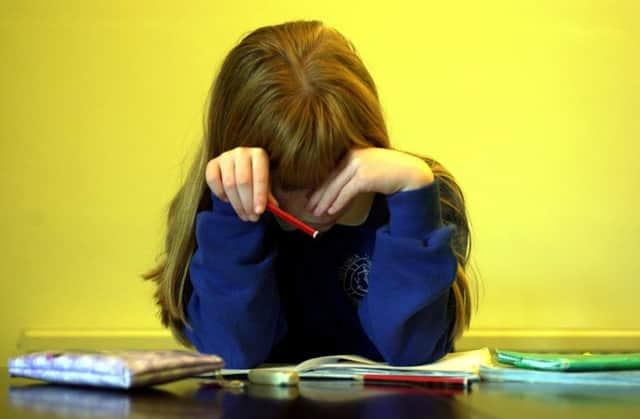One in three children ‘a victim to cyber bullying’


In a poll of 11- to 17-year-olds, 35 per cent reported that they have experienced cyber bullying – compared with 16 per cent last year.
Four in ten said they had witnessed others being picked on online – almost double the 22 per cent recorded last year.
Advertisement
Hide AdAdvertisement
Hide AdThe study also suggests that thousands of teenagers, including many aged 15 or under, are using messaging service Snapchat and dating app Tinder every day.
Some parents even helped set their children up with accounts, prompting fears they are unwittingly putting them at risk.
Internet security firm McAfee polled 2,000 UK children and 2,000 adults with at least one child aged under 18 ahead of the start of Anti-Bullying Week on Monday, and compared the findings with a similar study carried out last year.
The research indicated that there is a more relaxed attitude among increasing numbers of parents regarding the risks posed online.
Fewer than a third of parents said they were worried about their child being the victim of cyber bullying this year – almost halving from 45 per cent in the previous year, while two-thirds of children are now allowed to go online without supervision – up from 53 per cent.
CONNECT WITH THE SCOTSMAN
• Subscribe to our daily newsletter (requires registration) and get the latest news, sport and business headlines delivered to your inbox every morning
However, more than three-quarters of parents polled said they had conversations about online safety, up from 68 per cent last year.
“Bullying is bullying regardless of where it takes place,” said Elaine Chalmers, head of Childline in Scotland, which is run by the NSPCC.
Advertisement
Hide AdAdvertisement
Hide Ad“It remains a huge issue for children and young people and thanks to technology, can happen anytime, anywhere.
“Young people today have grown up in a digital world and don’t draw distinctions between their offline and online lives. Preventing your children from using the internet or mobile phones will not keep them safe online, so it’s important to have conversations that help your child understand how to stay safe and what to do if they ever feel scared or uncomfortable.”
One caller to the charity’s Childline service told how she had started to cut herself due to being attacked by cyber bullies.
“I feel so worthless because I’ve been getting bullied for a while now,” she said. “At first it was just in school, but now I’m bombarded with messages over my social networking account. It’s so constant.
“My mum knows what’s going on and has tried to help but it’s pointless – nothing will make it stop.”
About one in six of the youngsters polled reported using Tinder every day, with almost half of those aged 15 and under. The service was more popular among girls than boys, with one in five female respondents using it.
Tinder users are shown other subscribers close to their location, can give a positive reaction to them in the form of a tick, and receive one back in order to start communicating. It is open to those who are 13 or older, with under-18s only able to match with people in the same age bracket.
SCOTSMAN TABLET AND IPHONE APPS